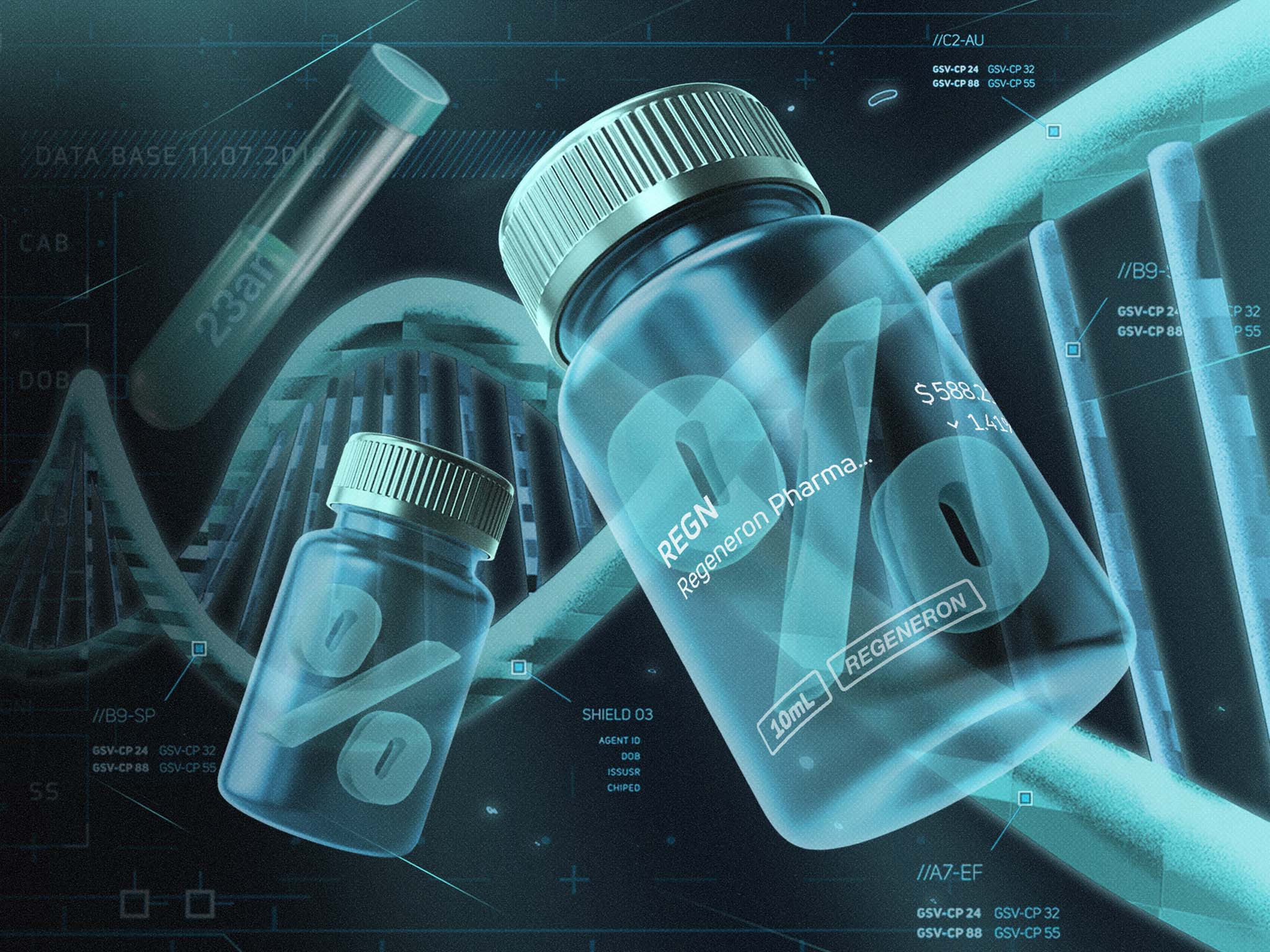If you’ve ever spit into a tube and mailed it to 23andMe to discover where your ancestors came from, locate a long-lost relative or find out your chance of developing Alzheimer’s disease, you could also soon be helping Regeneron Pharmaceuticals (NASDAQ: REGN) develop its next hit drug after the company announced earlier this week that it would purchase the genetic tester for $256 million.
While 23andMe was a pioneer in direct-to-consumer personal genomics from its founding in 2006, it struggled to turn a profit over the years and filed for bankruptcy protection in March in a move that sparked widespread privacy concerns that its vast database of very personal information could fall into the wrong hands. Regeneron—which plans to continue all services uninterrupted—likely isn’t chasing a pot of gold in Neanderthal ancestry reports, but rather in the real treasure collected along the way: data.
“Regeneron was one of the first biotech companies to bet its future on the power of DNA, fueling our drug discovery efforts so as to deliver some of the world’s leading and most innovative medicines,” co-founder and Chief Scientific Officer George Yancopoulos said. “We can help 23andMe deliver and build upon its mission to help those interested in learning about their own DNA and how to improve their personal health, while furthering Regeneron’s efforts to use large-scale genetics research to improve the way society treats and prevents illness overall.”
Regeneron said it will comply with all existing privacy policies and applicable laws, and it is also subject to review by a court-appointed, independent Customer Privacy Ombudsman. It’s a seeming win-win that protects consumers and also fairly values the data trove, according to Gulp Data. The moonshot now is using all that DNA to discover new drugs, as even one success could mean billions.
Biotech investors face roller coaster
Whatever happens is likely to be a wild ride. Regeneron’s stock soared more than 2,000% between 2010 and 2015 with approval from the US Food and Drug Administration for its drug to treat age-related macular degeneration and excitement about its expanding pipeline. Then, between 2019 and 2024, shares gained another 300% amid new treatments for Covid-19 and chronic inflammatory diseases.
But the crashes can be just as severe, and the company has seen those same shares decline nearly 40% over the past year amid declining sales of flagship treatments, increased competition and a class action lawsuit that alleged misleading disclosures around pricing and Medicare reimbursement. Specialty drug makers are always just one hit away from the next major rally, or one miss removed from a severe rout—and it can all happen overnight, with a single approval or denial from the FDA.
That’s why Regeneron’s purchase of 23andMe is so interesting. It’s not just a bet on one new drug, but on a trove of data it can use to systematically search for many new treatments. Yancopoulos specializes in molecular immunology and was one of the most cited researchers in biomedical science during the 1990s, and the company has already been using human genetics in the search for new medicines. Its existing data set of 2 million sequenced exomes is about to grow exponentially.
23andMe users become the product
“The acquisition matches Regeneron’s strategic initiative around genetic testing and genomic research,” Jason Saltzman, Head of Insights at CB Insights, said in a post on LinkedIn, adding that the company also works with hospitals to link genetic data and health records for drug discovery.
“For Regeneron, 23andMe’s genetic data on 15 million individuals will serve as an incredible asset for genomic insights at scale and should help accelerate the paths and timelines for drug discovery,” he continued.
There is of course risk, especially as it relates to how consumers will feel about having their genomes—perhaps the most sensitive information that exists about anyone—in the hands of a drugmaker. California Attorney General Rob Bonta, for example, is reminding people of their right to have their data deleted, and Regeneron will need to sell its new 23andMe users (products) on the value proposition going forward.
The real test will be whether Regeneron can turn millions of spit samples into billion-dollar breakthroughs, without alienating the people whose DNA makes it all possible. With a market capitalization of $64 billion, however, it’s paying a relatively small price to find out.




Comments